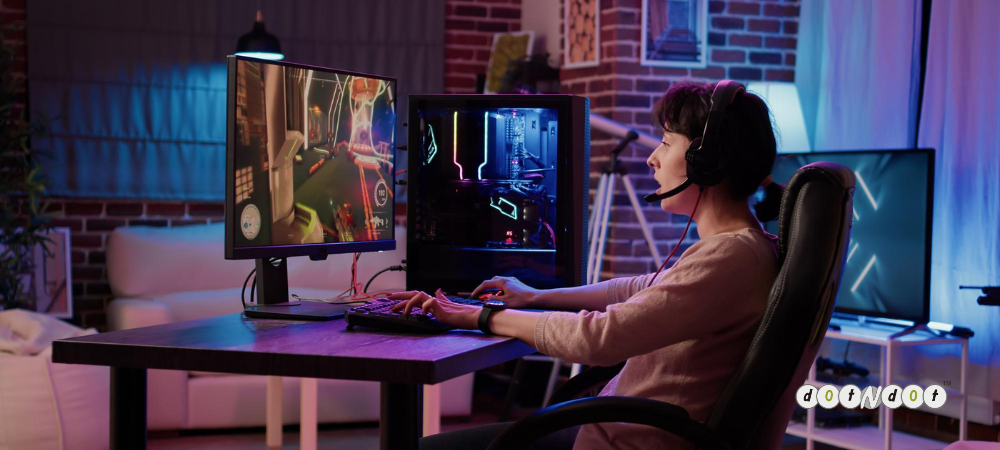
The gaming industry has been increasing through the years. In 2020, the global game market generated nearly $162.32 billion. With the industry’s continuous development, there is also an increase in the prevalence of game piracy. Game piracy is the unauthorized copying and distributing of video games. Many people think that game piracy is harmless, but it has significant negative impacts on the gaming industry. It aims to discuss the reality of what is game piracy affecting the industry today.
What is Game Piracy, and Why does It Matter?
Gaming has become a popular pastime and an important cultural phenomenon recently. New games are released yearly, enticing gamers with engaging stories, graphics, and gameplay mechanics.
However, there’s a dark side to gaming: piracy. Game piracy refers to the illegal distribution and usage of copyrighted games by individuals without the permission of game developers or publishers. Explore why game piracy is a significant issue and how it can harm the gaming industry.
An Insight into the Illicit World of Video Game Theft
Video games have come a long way since their inception in the early 1970s. With the advancement of technology, the gaming industry has blossomed into a multi-billion-dollar entity. However, along with the growth came piracy, an illegal practice plaguing the video game industry for years.
We will look in-depth at game piracy, exploring its definition, how it affects the industry and the measures developers take to combat it. We will explore why people pirate games and the consequences of indulging in this illicit activity.
Game piracy is the unauthorized use, reproduction, or distribution of video games without the copyright holder’s permission. It ranges from simple copying of game discs to more complex methods of hacking games to remove copy protection.
Game Piracy: The Dark Side of Gaming
For gamers, nothing is better than sitting down with your favorite game and immersing yourself in its world. However, game development has always been expensive, with game studios requiring millions of dollars and years of work to create a single game.
In the past, gamers who couldn’t afford to buy games resorted to borrowing them from friends or renting them from a video store.
But with the rise of the internet, piracy has emerged as a significant problem in the gaming industry, making it easier than ever for players to get their hands on illegal copies of games without a second thought.
We will explore the world of game piracy, its impact on the industry, and what can be done to stop it.
“game piracy” refers to unauthorized video game copying, distribution, and selling. Piracy can occur through various means, such as peer-to-peer file sharing, online stores selling fake copies, or illegal game downloading websites.
Game Piracy – A Growing Concern for Game Developers and Publishers
With the rise of the internet and digital media, piracy has become a significant threat to the gaming industry.
Piracy is the act of copying and distributing games without the permission of the game developers or publishers, resulting in significant financial loss to the creators.
We will explore the impact of game piracy on the gaming industry and the reasons behind its rampant growth.
The Impact of Game Piracy on the Gaming Industry
Game piracy can significantly impact the gaming industry, significantly dropping in-game sales. With the availability of pirated games, many users tend to avoid paying for the original games.
This has led to an estimated loss of billions of dollars in revenue for game developers and publishers. The loss of income also affects the future development of new games and the quality of the games.
Reasons Behind the Growth of Game Piracy
One of the primary reasons behind the growth of game piracy is the need for more education and awareness among people regarding the impact of piracy on the gaming industry.
Many users need to be aware of the consequences of downloading pirated games and believe they are doing everything correctly.
Many users prefer to download pirated games to avoid the high cost of purchasing the original games.
Another reason for the growth of game piracy is the availability of high-speed internet connections, which makes it easy for people to download and share games.
The development of peer-to-peer networks has made it easier for people to share pirated games with others. Game “cracking” groups also contribute to game piracy by releasing cracked versions of games online.
Measures Taken by Game Developers and Publishers to Combat Game Piracy
Game developers and publishers are taking several measures to combat game piracy. One of the most effective measures is using digital rights management (DRM) systems.
These systems are designed to prevent unauthorized copying and sharing of games. However, DRM systems have issues, such as restricting legitimate users from playing games they have legally purchased.
Another measure is to provide additional content with the original game, such as exclusive in-game items and expansion packs, to encourage users to purchase the original copy.
In addition, game developers and publishers are partnering with law enforcement agencies to track and prosecute pirates.
The Truth about Game Piracy: What It Is and Why You should Avoid It
Game piracy is a hotly debated topic in the gaming industry. While some people defend it as a way to access games for free, others believe it is an illegal practice that hurts the industry and the people working there.
We will examine game piracy: what it is, how it works, and why you should avoid it.
First and foremost, let’s define what game piracy is. Game piracy is the unauthorized use, copying, distribution, or sale of copyrighted games without the copyright owner’s permission.
In simpler terms, it means downloading and playing cracked games for free. When you download a broken game, you steal from the developers who spent countless hours designing and coding the game.
Conclusion
Game piracy is a problem that impacts the gaming industry negatively. Piracy has led to developers’ loss of revenue, hampering the gaming industry’s growth, creativity, and innovation.
Besides, gaming piracy poses a security threat not only to the players but also to the game developers.
As gamers, we should support the video game industry and its developers by purchasing legitimate copies of games.
We should acknowledge that we negatively impact the industry we love when we pirate games.
Therefore, gamers must band together to combat piracy and protect the industry’s future. Let’s play fair and support the gaming industry, one purchase at a time.



